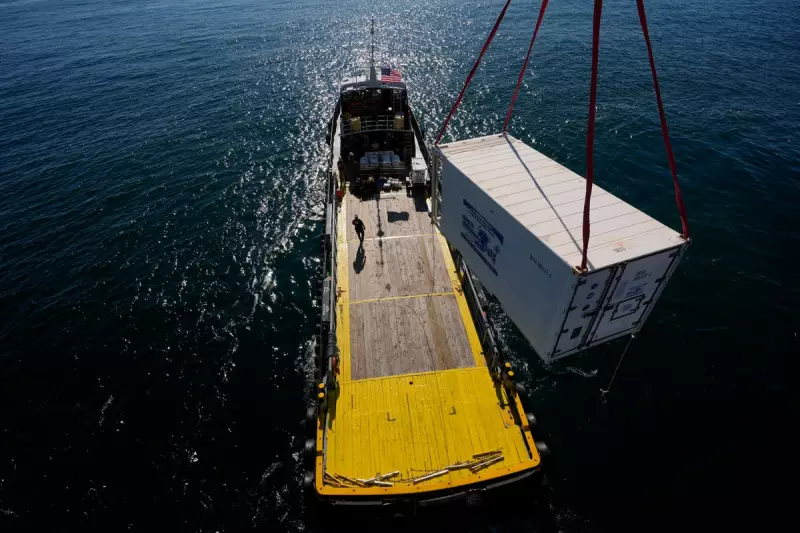
In a landmark discovery that could reshape the future of Britain's water security, a team of scientists has successfully mapped a colossal freshwater reservoir hidden deep beneath the seafloor off the UK coastline. This vast underwater cache, located in a region historically connected to the mainland, promises a potential new source of clean drinking water for future generations.
The groundbreaking findings, published in the journal Nature, detail how researchers utilised advanced electromagnetic imaging technology to penetrate the seabed. This allowed them to create a detailed map of the submerged aquifer—a layer of water-logged sediment—that holds billions of gallons of low-salinity water.
A Relic from Icy Ages
Experts believe this underwater treasure is not a new formation but a prehistoric relic. The most plausible theory suggests the water became trapped in the subterranean rock layers during the last Ice Age, over 20,000 years ago, when sea levels were significantly lower and the area was dry land. As glaciers melted and seas rose, these ancient freshwater reserves were sealed beneath layers of clay and marine sediment, preserving them for millennia.
Tapping into the Deep: Challenges and Opportunities
While the prospect is exciting, accessing this water presents significant engineering challenges. Drilling through the seabed to depths of hundreds of metres is a complex and costly endeavour, requiring technology similar to that used in offshore oil exploration but with a strict environmental mandate to avoid contamination.
However, the payoff could be immense. For a nation increasingly facing water scarcity and drought due to climate change, this aquifer represents a strategic buffer. It could serve as a critical emergency resource during prolonged dry spells or supplement existing supplies for coastal communities, reducing reliance on overstretched rivers and reservoirs.
Professor Andrew Fisher, a leading hydrogeologist, stated, "This discovery fundamentally changes our understanding of water resources. While not an immediate solution, it opens up a new frontier for sustainable water management. The key will be to extract it responsibly without harming the marine ecosystem."
The research team is now calling for further investigation to precisely determine the water's quality, volume, and the most sustainable methods for its potential extraction. This undersea find positions the UK at the forefront of a new era in resource exploration, turning the ocean floor into a potential source of life-sustaining freshwater.





